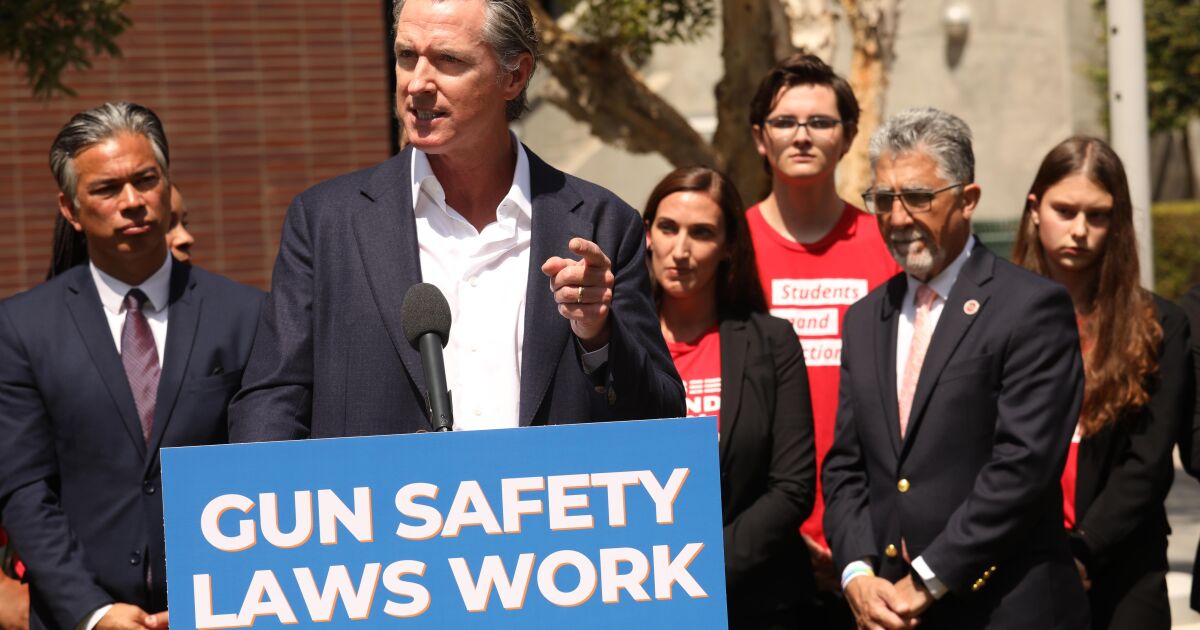Gov. Gavin Newsom on Thursday called for a U.S. constitutional amendment on gun control that would ban assault weapons and mandate background checks and waiting periods for purchasing firearms, a longshot proposal with little chance of passing in a nation deeply divided on the issue.
For Newsom’s proposed 28th Amendment to be considered, legislatures in two-thirds of the states must vote in favor of a constitutional convention. Republicans currently control more than half of the nation’s state legislatures, some of which have recently taken action to reduce gun restrictions, indicating that there is little chance of that happening.
However, Newsom’s announcement is likely to be popular among national Democrats and in California, which has some of the toughest gun control restrictions in the nation. It could further the liberal governor’s efforts to expand his political influence on some of the most pivotal and controversial issues facing the country.
The proposal comes after Newsom in March launched a new federal political action committee, dubbed the Campaign for Democracy, which he said he created to boost Democrats and push back on Republican leaders who “ban books,” “kidnap migrants” and “stoke racism” before the 2024 election.
Newsom’s proposed amendment on gun restrictions, which he announced Thursday on NBC’s “Today” show, would do the following:
- Outlaw the civilian purchase of assault weapons.
- Raise the federal minimum age to purchase a firearm from 18 to 21.
- Mandate universal background checks for gun purchases.
- Institute a “reasonable waiting” period for all gun purchases.
“The 28th Amendment will enshrine in the Constitution common sense gun safety measures that Democrats, Republicans, independents, and gun owners overwhelmingly support — while leaving the 2nd Amendment unchanged and respecting America’s gun-owning tradition,” Newsom said in a statement Thursday morning.
Newsom said he is working with the state’s Democrat-controlled legislature to make California the first state to call for the constitutional convention.
Under the the U.S. Constitution, an amendment may be proposed by a two-thirds majority vote in both chambers of Congress or by a constitutional convention called for by two-thirds of the state legislatures. According to the National Archives, none of the 27 amendments to the Constitution have been proposed by constitutional convention.
This story originally appeared on LA Times

